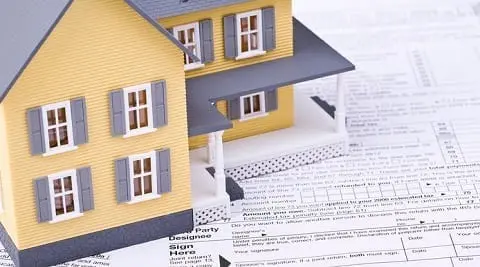
By Ashley Steel
One of the great benefits of homeownership is the tax deductions that come with it. But what, if anything, distinguishes a newly built home from a resale home when it comes time to file your taxes?
While both forms of homeownership offer great benefits, there are some additional types of tax benefits of owning a newly built home that shoppers can attain. Let’s take a closer look:
Construction Loan
Some newly built homebuyers take out what is known as a construction loan, or, a loan that originates to cover the costs associated with the construction of a home, that later converts into a buyer’s permanent home mortgage when construction is complete.
With these types of loans, “you can deduct the interest you pay during the first 24 months of the loan,” says Jayson Mullins, CEO at Top Tax Defenders, a tax resolution firm in Houston, Texas.
It’s important to note however, that this type of deduction doesn’t apply in all circumstances. For instance, the home in question must be your primary or secondary residence to qualify. “Furthermore, the deduction applies only to the first $1 million in total loan proceeds, including interest,” says Mullins. “This limit is reduced to $500,000 if you are married and filing separately.”
Mortgage Deductions
While not unique to newly built homes, mortgage deductions are a significant part of helping you get a return on your taxes. Mortgage deductions occur across the following categories:
Mortgage Interest
The IRS allows taxpayers to deduct both their mortgage interest up to $1 million ($500,000, if married and filing separately).
Mortgage Points
A mortgage point is prepaid interest equal to 1 percent of the value of a mortgage. Mortgage points can only be purchased at the time of loan origination.
These points are tax deductible in the year they are paid, but only if they meet the following home mortgage points criteria from the IRS.
Mortgage Insurance Premiums
For tax purposes, qualified mortgage insurance premiums are considered mortgage interest and, therefore, deducted within the $1 million limit.
Energy Efficiency
“An energy credit is available called the Residential Energy Efficient Property Credit,” says Mullins. Certain energy saving features — or improvements in the case of a resale home — allow homeowners to save as much as 30 percent of the cost of installation.
“Taxpayers should know that not all high-efficiency products qualify as a tax credit,” says Mullins. Products only qualify if they come with a manufacturer’s tax credit certification statement, usually found in the product packaging or on the manufacturer’s website.
The advantage when it comes to newly built homes is that they already come outfitted with the latest in green technology, which gives you a greater chance of earning the Residential Energy Efficient Property Credit without having to do much.
Property Taxes
The IRS allows taxpayer to deduct their property taxes as well. Depending on the state, resale homes typically have lower property taxes, says Mullins.
However, newly built homeowners can deduct property taxes they incur while their new home is being built. “The taxes are based on the property assessed value,” say Mullins. “In order for taxpayers to qualify for this deduction, it has to be paid within the same tax year.”
While most types of tax benefits apply to both new and resale homes, there is a higher likelihood of securing these benefits in a newly built home. Construction loans and property taxes allow homebuyers to reap the benefits of tax returns before even moving in, while the increased energy efficiency of new homes is likely to yield credit as well.
Ashley Steel is staff writer/editor for NewHomeSource, where you can search for and get information on new homes and new construction communities. You can find her on Google+.
 How to Create the Perfect Hobby Room
How to Create the Perfect Hobby Room
Doris Rios
My new home after construction was not ready for move-in and closing until Nov 26, 2020. In regards to the 2020 taxes is there much that I could expense ?
Jamie Garcia
Hi Doris,
You can check out 7 Tax Benefits of Owning a Home here: https://www.newhomesource.com/learn/homeowner-tax-benefits/